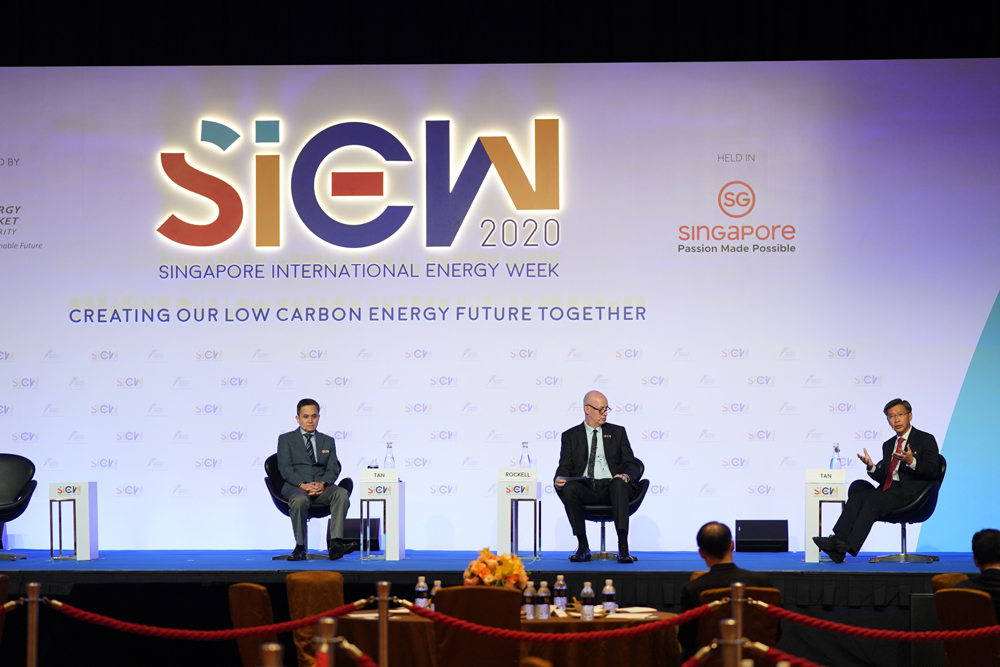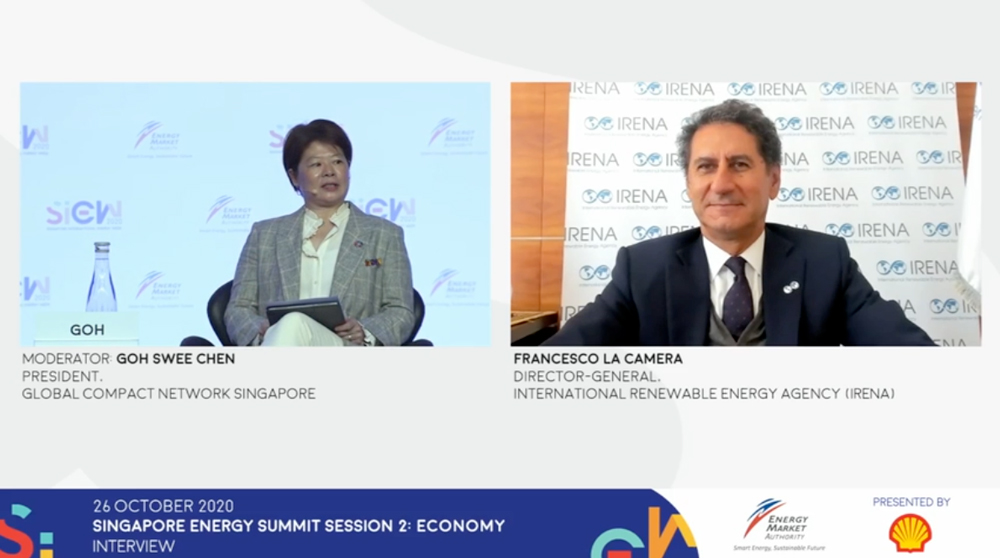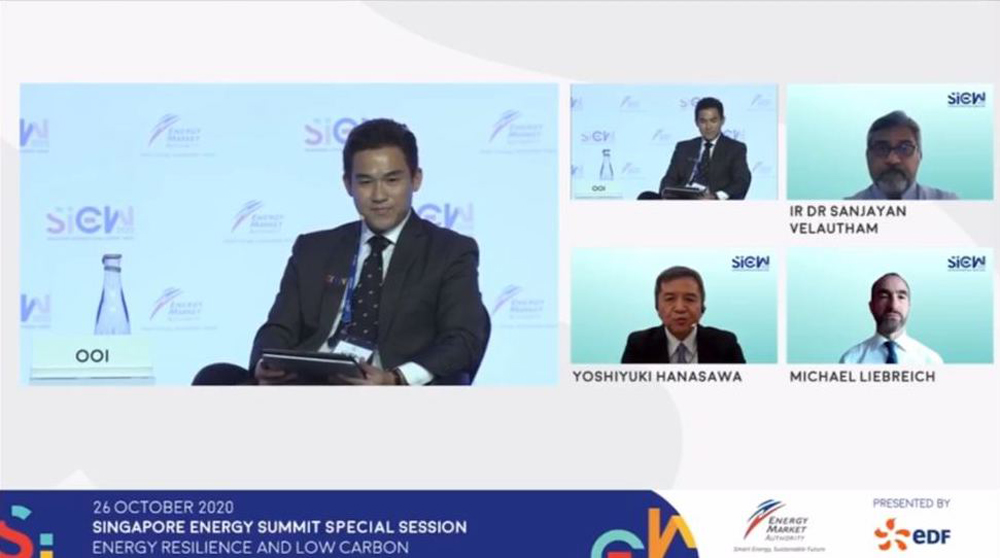Continued investments in renewables and clean energy technologies are vital to facilitating the shift to a low carbon economy. Panellists at the Singapore Energy Summit explored these current developments in the energy sector. Kit Bun reports.

A lively exchange at the Singapore Energy Summit discussed the evolving market landscape amidst the pandemic—and the opportunities for financing changes to energy infrastructure to support a low carbon economy.
The RT Hon. Kwasi Kwarteng MP, Minister of State, Minister for Business (Energy and Clean Growth) from the United Kingdom shared that investments in renewable technologies are being sustained despite the current economic outlook. He urged sustaining these efforts in meeting climate change targets.
Sharing the same observation, H.E. Patricia Espinosa, Executive Secretary, United Nations Framework Convention on Climate Change said that the bulk of new generation capacities are made up of renewable energy and this is expected to increase as world markets recover from the pandemic.
Renewables to drive a green recovery
Francesco La Camera, Director-General, International Renewable Energy Agency (IRENA) added that despite the pandemic, energy transformation will remain a key priority as it is a basic utility for society. Investment in low-carbon technologies will also add more than 5 million jobs by 2023, leading a green recovery to a more resilient future.

Kazuhisa Yano, Executive Chairman, Chief Asia Representative, Osaka Gas shared that the realisation of a decarbonised society will entail a transitional phase using natural gas before other alternatives such as hydrogen or renewables become available widely.
In the panel discussion that followed, the speakers shared how continued investments in renewables and other technologies could facilitate a low carbon transition.
.jpg?sfvrsn=79a11979_0)
Balancing demands for energy resilience and decarbonisation
In a special session on energy resilience, Béatrice Buffon, Group Senior Executive Vice-President of EDF International, and King Abdullah Petroleum Studies and Research Center (KAPSARC) President Adam Sieminski kicked off the discussion with their views on the key considerations in charting the ideal future energy mix.
Béatrice Buffon said electrification will be the future of energy to ensure proper decarbonisation of the economy. There is no fixed ideal energy mix for every country, and it should evolve with affordability, availability and sustainability in mind.
Adam Sieminski further touched on the importance of good regulatory and finance frameworks to develop technologies needed to address climate change challenges.

In the panel discussion that followed, Michael Liebreich, Chairman and CEO of Liebreich Associates, shared his view that the trend for a carbon-neutral economy will likely remain and energy companies would need to evaluate whether to transit to a clean energy business. IR Dr Sanjayan Velautham, CEO of Sustainable Energy Development Authority, Malaysia echoed the need for regulatory frameworks to encourage renewable deployment.
Yoshiyuki Hanasawa, Executive Vice President, Chief Regional Officer for Asia Pacific and India, Mitsubishi Heavy Industries further observed that incorporating hydrogen in power generation is an ongoing development and will continue to grow.
Follow us on Twitter (@SIEW_sg) to get the latest #SIEW2020 updates throughout the day!